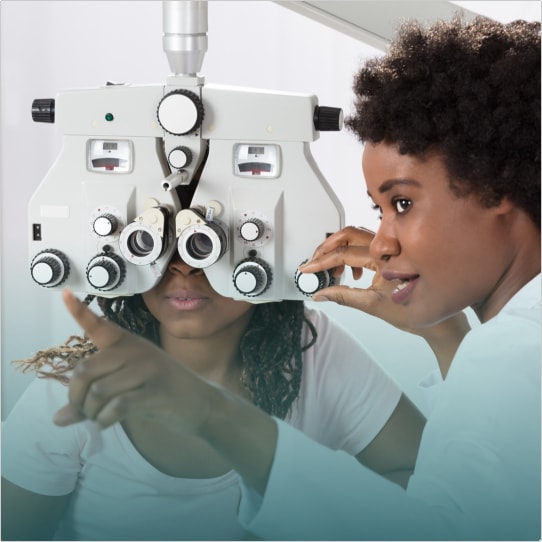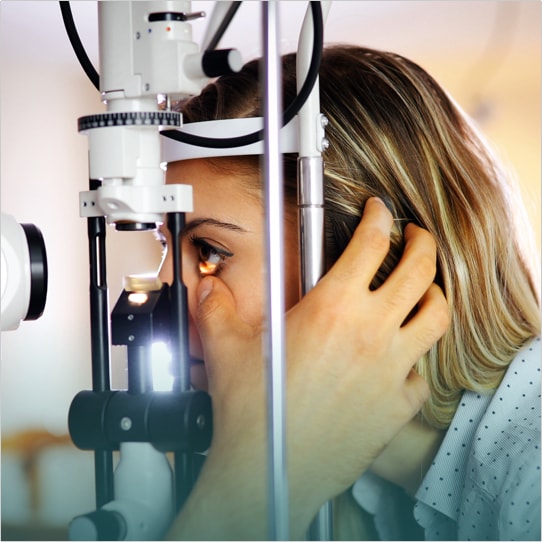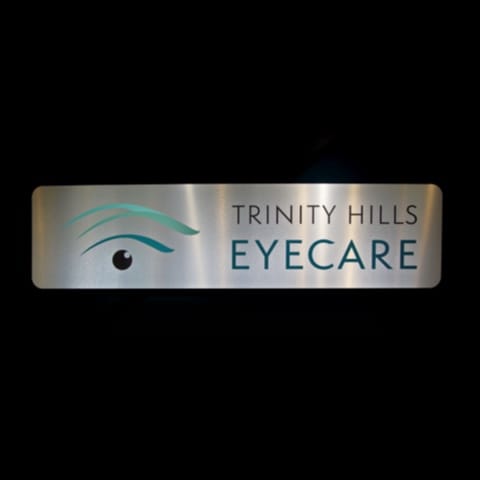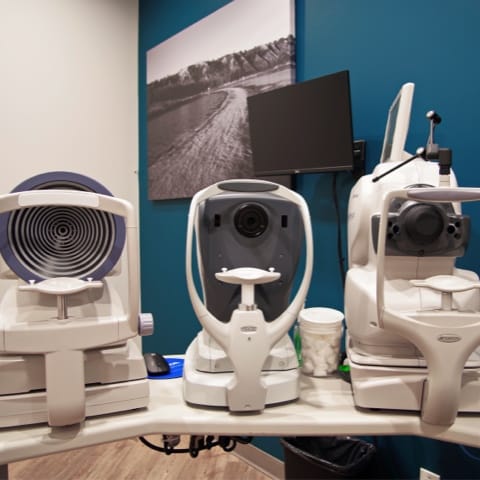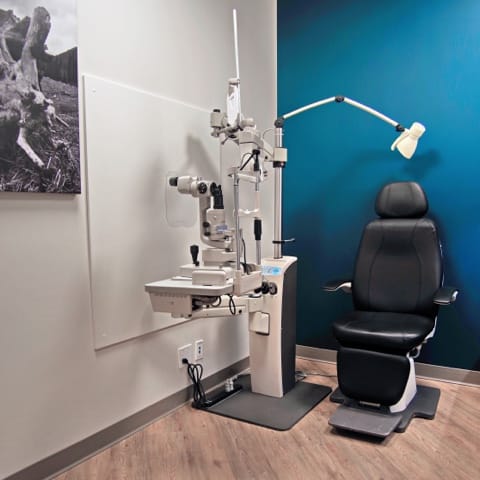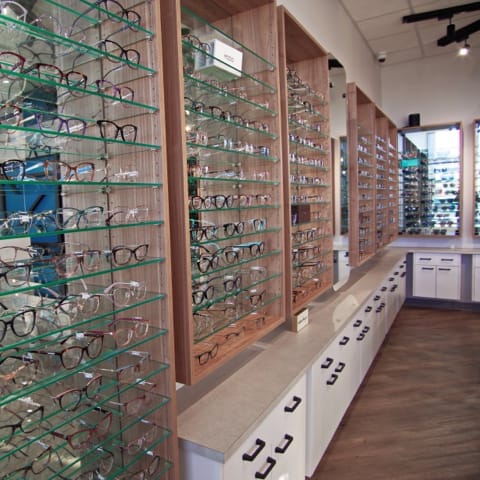Be Prepared for an Ocular Emergency
Even when we’re careful, emergencies can happen—and an injury to the eye can be startling and stressful. Don’t panic; seek appropriate care.
Call our eye clinic, which is located at the cusp of NW and SW Calgary. Or visit your emergency room if we’re unavailable. You can also call 811 (Health Link) or 911. Additionally, the Rockyview Hospital has an eye clinic.
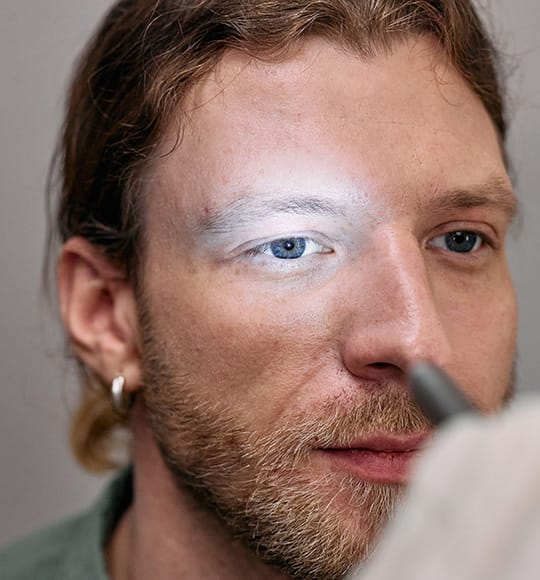
Signs of an Eye Emergency
If sudden problems with your vision occur, find help fast. Don’t ignore anything that seems painful, out of the ordinary, or is making you struggle to see. Signs of an eye emergency include:
- loss of vision
- burning or stinging
- pupils that are not the same size
- one eye not moving like the other
- one eye sticking out or bulging
- general eye pain
- decreased vision
- double vision
- redness and irritation
- light sensitivity
- bruising around the eye
- bleeding from the eye
- blood in the white part of the eye
- discharge from the eye
- severe itching
- new or severe headaches
You need to be proactive about protecting your sight. If something abnormal is occurring, visit us for care.
Common Eye Care Emergencies
Floaters & Flashes
Floaters and flashes may both occasionally occur under normal circumstances. Floaters are the small squiggly lines or specks that move away as you try to look at them. Flashes are spots of light that can look like lightning but are inside the eye, not in your field of vision. Small amounts of either can be harmless but should still be mentioned to your optometrist.
The danger occurs when flashes or floaters occur in large numbers very suddenly, which may be a sign of retinal detachment. This serious injury occurs when the back layer of your eye is pulled out of its proper position.
Foreign Object in the Eye
Large or small, getting something in your eye is usually uncomfortable—if not downright painful. Small foreign objects like dust or debris can irritate the eye but may be removed by flushing the eye or blinking gently. If irritation continues, seek help.
Large foreign objects like glass, wood, or metal can cause severe eye damage. Do not attempt to remove these yourself and seek immediate help. Don’t apply pressure or move the eye excessively—instead, carefully cover the affected eye with a sterile cloth or a cup, depending on the object’s size.
Blunt Trauma
Blunt trauma includes a whack to the head, an impact to the face, or anything else that could blacken your eye or break your nose. This may cause swelling, blood in the white of the eye, or blurred or double vision.
Medical help after blunt trauma is essential for preserving your vision and checking for other injuries. You want to rule out a potential concussion after sustaining a hit to the head.
Chemical Splashes
Getting a chemical in your eye, such as cleaning products, gardening chemicals, fumes, or aerosols, can wreak havoc with your vision. Chemicals can also be transferred to your eyes from your hands.
If you sustain a chemical eye injury, wash your hands thoroughly and flush them with water for several minutes. Remove contacts if you’re wearing them, as they can trap the chemical close to your eye—this is the one exception to the rule about not removing anything from your eye after an injury.
Ocular First Aid Tips
There are several things you can do to mitigate eye injuries when they happen. There are also things you can do that may make things worse. Here are some basic first aid tips for your eyes.
DOs
Do seek medical aid immediately. Act fast to safeguard your vision.
Do keep your hands clean if you have to touch the area around the eye or the eye itself. Wash with soap and water, and make sure you’re not introducing more debris to your injured eye.
Do flush the eye with cool, clean water in the event of chemical eye emergencies.
DON’Ts
Don’t apply pressure, such as rubbing the eye. This could drive an object further into the eye, worsening any damage that may have occurred or scratching the cornea further.
Don’t ignore symptoms. You only have one set of eyes; don’t neglect to care for them quickly.
Don’t use small tools like tweezers around the eye. Small sharp objects and the eye do not mix, especially if you’re in distress, panicked, or in pain. Leave foreign object removal to trained medical professionals.
We’re Here To Help
When in doubt, contact us right away. We’ll see you as soon as possible or give you instructions on how to manage your injury.
Our Brands









